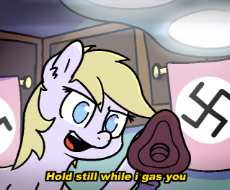4th Industrial Revolution Distributism
"3D printers and a house"
The failures of socialism and capitalism have been made obvious in the 20th and 21st century respectively. Socialism failed to achieve a classless society, and instead resulted in some of the most oppressive regimes in human history. Capitalism failed to spread prosperity to the working classes and resulted in the concentration of wealth in the hands of a few plutocrats. Both systems centralized control, decimated the environment, collapsed birthrates, and robbed individuals of agency. In the interests of freedom, dignity, prosperity, the environment, and stability, a better system is needed.
Socialism and neoliberal capitalism both formed as reactions to the industrial revolution, and any solution going forward will likewise need to cater to the needs of the times. Socialism attempted to solve the massive inequality between the bourgeoisie and the proletariat by empowering the state to seize the means of production. Neoliberal capitalism simply assumed the free market would solve society's ills. Neither of these solutions worked, but what to replace them with? Fascism resulted in a totalitarian nightmare, and anarchy in practice has only lasted a few months at best. Distributism, the idea of decentralizing the means of production, was proposed as a solution in the 20th century. However, distributism has never been tried and with good reason; classical distributism suggests going back to an agrarian lifestyle and artisanal goods. No one will willingly give up the comforts of industrial society.
The benefits of industrialization come from mass production, while the drawbacks come from the centralization of control. Mass production allows for the creation of cheap consumer goods. Centralizing control results in less freedom and more corruption. Therefore, any solutions must be able to compete with economies of scale and must be decentralized. Distributism would obviously be decentralized, but an agrarian society of artisanal produced goods could simply not compete with mass production. Distributism needs an upgrade.
The first industrial revolution gave us electricity and machinery but made us dependent on power companies. The second revolution gave us steel and mass production but made us dependent on large scale manufacturers. The third industrial revolution gave us all of mankind's information at our fingertips but made us dependent on internet service providers and semiconductor manufacturers. The 4th industrial revolution will focus on artificial intelligence, automation, and biotechnology and has the potential to either further enslave us or truly set us free.
If adopted by socialism or capitalism the 4th industrial revolution will focus on surveillance and changing the human condition using biotechnology. Power has further centralized with each industrial revolution and a true surveillance state would be the ultimate expression of centralization. Declining birthrates show that humanity is simply not psychologically suited for modern society so a "new man" will be necessary for the continuation of either system. If ideologies of centralization are allowed to continue, what truly makes us human is at stake.
In the third industrial revolution many "open source" projects were developed by various online communities such as Linux, the Maker Movement, and the Precious Plastics Movement. Such movements show that individuals and decentralized communities can produce goods on a smaller scale. 3D printers, CNC machines, small-scale bioreactors, miniature foundries, and kilns all allow for the creation of goods and are all capable of supporting larger industries. These technologies would allow for distributism to compete with mass production. Chief among these technologies is the bioreactor, which can support everything from plastics, to fertilizers, to semiconductors.
Large scale production may benefit from producing many goods at once, but such processes are not very adaptable. Take an oil refinery for example which can cost millions to adjust a process. A small yeast fermentation chamber only costs a few thousand dollars at most and is much more adaptable because the microorganisms inside can easily be switched out. Adaptable processes would allow communities to shift their production focus depending on their needs. Key components and materials would need to be standardized so that local communities could trade and coordinate production with one another. One could argue that society has standardized parts under centralized modes of production, but one only needs to look at a modern smart phone to know that this is incorrect. Likewise, modularity should also be enforced across different communities. Machinery needs to be made so that one part can easily be switched with another, and chemicals manufactured to specific compositions and purities. Standardization and quality control would be two major functions of any state with a distributist economy.
The primary function of the state should be to ensure that healthy families are being formed for the sake of the continuation of our species. To do this a state must create safe and stable communities for families to thrive. Must take steps to guarantee, as best as possible, the physical, mental and economic health of the populace. Protect the population from foreign and domestic threats be they physical threats, economic threats, or moral threats. Research innovative solutions to compete with foreign competition and strategic adversaries. And to mediate conflict and competition among citizens.
/mlpol/ - My Little Politics
Archived thread
The family unit is of utmost importance for society as it ensures stable reproduction. The basic building block of a society is the family unit, not the individual. Much like a water molecule ceases to behave as water when it is split into hydrogen and oxygen, families behave differently than individuals. A family operates in the interest of a family and while an atomized individual only acts in their self-interest.
So then what roles should each member of the family perform? The father should lead the household, provide for the family, and teach a craft to the children. The mother should nurture the children, educate the children, and assist in the family craft. The children should learn from their parents, assist in chores, and continue the family legacy. This is not to imply that women should not help provide for their families or that men should not nurture their children, but the sexes have different roles to play.
To ensure the economic health of each family each family should be given access to the means of production so they can independently produce goods for their communities. This could take many different forms; a family given a farm to produce food, a family given a bioreactor to produce medicine, a family given a 3d printer to produce molds for lost PLA casting. The list goes on. Classical distributism proposed 3 acres and a cow to make each family financially independent. The distributism of the fourth industrial revolution proposes 3D printers and a house.
It is not enough merely to guarantee access to the means of production, the state must innovate and direct research as well. To do this the state should set up several small labs focused on sustainable, small-scale production and open them to the public. Laboratories require expensive and specialized machinery to run tests, and they will need public funding. If they are to be funded by the citizens, then the citizens ought to have access to them to run tests of their own. Obviously access to certain laboratory facilities will have to be restricted based on expertise and hazardous materials will need strict oversight. The state is the only entity that could reasonably run the laboratories as the research may not be initially profitable. Subject matter experts will run each individual laboratory in their field of expertise and help determine who has access to which areas of the lab. These experts would be appointed by the local elected government officials.
A decentralized, adaptable, sustainable, autarkic, and innovative society will be made possible the 4th industrial revolution. The systems and processes necessary for such a society must be designed and adopted by independent citizens wanting a brighter future. Taking steps towards this world could be as simple as starting a business with a 3D printer. Makers, homesteaders, biohackers, STEM majors, tradesmen, and open-source developers must be the vanguard of this ideology and will have to play leading roles in any movements promoting the distributism of the 4th industrial revolution. The future can be bright if we want it to be.
So then what roles should each member of the family perform? The father should lead the household, provide for the family, and teach a craft to the children. The mother should nurture the children, educate the children, and assist in the family craft. The children should learn from their parents, assist in chores, and continue the family legacy. This is not to imply that women should not help provide for their families or that men should not nurture their children, but the sexes have different roles to play.
To ensure the economic health of each family each family should be given access to the means of production so they can independently produce goods for their communities. This could take many different forms; a family given a farm to produce food, a family given a bioreactor to produce medicine, a family given a 3d printer to produce molds for lost PLA casting. The list goes on. Classical distributism proposed 3 acres and a cow to make each family financially independent. The distributism of the fourth industrial revolution proposes 3D printers and a house.
It is not enough merely to guarantee access to the means of production, the state must innovate and direct research as well. To do this the state should set up several small labs focused on sustainable, small-scale production and open them to the public. Laboratories require expensive and specialized machinery to run tests, and they will need public funding. If they are to be funded by the citizens, then the citizens ought to have access to them to run tests of their own. Obviously access to certain laboratory facilities will have to be restricted based on expertise and hazardous materials will need strict oversight. The state is the only entity that could reasonably run the laboratories as the research may not be initially profitable. Subject matter experts will run each individual laboratory in their field of expertise and help determine who has access to which areas of the lab. These experts would be appointed by the local elected government officials.
A decentralized, adaptable, sustainable, autarkic, and innovative society will be made possible the 4th industrial revolution. The systems and processes necessary for such a society must be designed and adopted by independent citizens wanting a brighter future. Taking steps towards this world could be as simple as starting a business with a 3D printer. Makers, homesteaders, biohackers, STEM majors, tradesmen, and open-source developers must be the vanguard of this ideology and will have to play leading roles in any movements promoting the distributism of the 4th industrial revolution. The future can be bright if we want it to be.
>>373198
>>373199
The problem that typically arises in all planned large scale measures is that on paper everything works well.
But shit hits the fan all the time in large and small ways.
It comes down to who has the ability to choose and how wide reaching it can be.
Socialism gives it to some unnamed group of people called the state. Choice is ripped away from everyone and given to the state.
So the fastest way to corrupt that system is to be the state.
Theoretical Capitalism gives the choice to who ever has a standard unit of trade.
Anyone who doesn't have enough can't.
So the fastest way to corrupt that system is to control the standard unit of trade.
Etcetera. For force, opinion, thinking, land, movement, materials, knowledge, wisdom and more.
That's the current state of each and every system. Some have more points of vulnerability.
Your take of Distributism has one such vulnerability the who or what that distributes the thingies and how.
The bottleneck is threefold, teamwork, raw material and scale.
It however encourages what is essentially micro-nation communities, turning every however much area into enough of a manufacturing capable entity that a land war without demolishing everything would be extremely painful.
At most they could try waiting out for supplies to dwindle like a castle, but long wars are bad wars.
It buts up against man power issues as everything does.
Family is required for the survival of humanity as we all know it's constantly under attack. From inside and out depending on the situation.
In years bygone each family would interview the other and the potential pairing.
To be fair nothing much has changed, an excellent women or man is a rare find.
And finding equally suitable partners is made deliberately difficult.
In the times to come people are starving for friendship and family.
Whoever provides wins.
(((They))) won't because destroying races is the point. (((They))) might give a red herring and a poisoned chalice.
Over all its a neat thought to consider.
Having enjoyed the bounties people who freely put online there's a kinship with quality ones and those with heart and soul.
Having multiple means of producing stuff is possible now. It's maybe a decent shtf to prevent total degradation of communities, families or even yourself.
Doing what you've suggested as an individual or family unit is a good idea, it's an investment. While economies of scales means bigger, better, faster wins the ability to withstand when they fall because of whatever reason is vital to maintaining high quality of life in shit hitting the fan situations.
Typically it means alot of wasted space and money and time and effort, but it's part of the investment process. Like a ye olde bomb shelter.
One day it may be used or repurposed, but it's there as a fallback insurance that not everything has fallen through.
>>373199
The problem that typically arises in all planned large scale measures is that on paper everything works well.
But shit hits the fan all the time in large and small ways.
It comes down to who has the ability to choose and how wide reaching it can be.
Socialism gives it to some unnamed group of people called the state. Choice is ripped away from everyone and given to the state.
So the fastest way to corrupt that system is to be the state.
Theoretical Capitalism gives the choice to who ever has a standard unit of trade.
Anyone who doesn't have enough can't.
So the fastest way to corrupt that system is to control the standard unit of trade.
Etcetera. For force, opinion, thinking, land, movement, materials, knowledge, wisdom and more.
That's the current state of each and every system. Some have more points of vulnerability.
Your take of Distributism has one such vulnerability the who or what that distributes the thingies and how.
The bottleneck is threefold, teamwork, raw material and scale.
It however encourages what is essentially micro-nation communities, turning every however much area into enough of a manufacturing capable entity that a land war without demolishing everything would be extremely painful.
At most they could try waiting out for supplies to dwindle like a castle, but long wars are bad wars.
It buts up against man power issues as everything does.
Family is required for the survival of humanity as we all know it's constantly under attack. From inside and out depending on the situation.
In years bygone each family would interview the other and the potential pairing.
To be fair nothing much has changed, an excellent women or man is a rare find.
And finding equally suitable partners is made deliberately difficult.
In the times to come people are starving for friendship and family.
Whoever provides wins.
(((They))) won't because destroying races is the point. (((They))) might give a red herring and a poisoned chalice.
Over all its a neat thought to consider.
Having enjoyed the bounties people who freely put online there's a kinship with quality ones and those with heart and soul.
Having multiple means of producing stuff is possible now. It's maybe a decent shtf to prevent total degradation of communities, families or even yourself.
Doing what you've suggested as an individual or family unit is a good idea, it's an investment. While economies of scales means bigger, better, faster wins the ability to withstand when they fall because of whatever reason is vital to maintaining high quality of life in shit hitting the fan situations.
Typically it means alot of wasted space and money and time and effort, but it's part of the investment process. Like a ye olde bomb shelter.
One day it may be used or repurposed, but it's there as a fallback insurance that not everything has fallen through.
>>373200
>Your take of Distributism has one such vulnerability the who or what that distributes the thingies and how.
I envision that a family would be given a choice on what to produce by the elected local government.
>The bottleneck is threefold, teamwork, raw material and scale.
Teamwork would be difficult. Coordinating research and production across different communities could be challenging especially since each community would be primarily focused on it's own needs. The state would need to help unify the population.
I don't think raw material will be an issue though. With the biotech revolution the materials of the future will not be extracted from the Earth; they will be grown.
I would like you to elaborate on the scale problem though. I think small-scale processes can work.
>Your take of Distributism has one such vulnerability the who or what that distributes the thingies and how.
I envision that a family would be given a choice on what to produce by the elected local government.
>The bottleneck is threefold, teamwork, raw material and scale.
Teamwork would be difficult. Coordinating research and production across different communities could be challenging especially since each community would be primarily focused on it's own needs. The state would need to help unify the population.
I don't think raw material will be an issue though. With the biotech revolution the materials of the future will not be extracted from the Earth; they will be grown.
I would like you to elaborate on the scale problem though. I think small-scale processes can work.
>>373201
>I would like you to elaborate on the scale problem though.
Bigger companies and factories can produce more units of product per unit of time and labor.
Which is cheaper for everyone.
Small-scale production only needs to run for situational needs.
Factories run almost at all times which means there needs to be transport and storage and retailers and whatever else.
Each additional needed thing or step increases cost, the only way to recoup it is by increasing the price of the produced unit.
Factories and large business can have niche machines running at all times as the real money isn't in artisanal goods but in bulk production.
At least that was how it was.
Granted theres also some caveats.
Artisanal singular produced goods is essential to bootstap into a full factory anywhere.
Last point is efficiency the more efficient a factory or logistics chain is the less energy and time is consumed. A 0.001% for an at home 3D printer just isn't that much of a big deal for human perception.
That same 0.001% increase in efficacy at large scales means big business just saved billions over the year.
A bad unit can be catastrophic, because is usually more cost effective in most cases to make the damn thing correctly even in the event of a bad unit they can recoup the cost.
Small producers would be wiped out, which demands and even higher standard from individuals.
Bigger operations get around it by having multiple people.
Usually...
Anyway single production units aren't efficient, which is part of why the division of labor exists.
Hyper specialized countries are more easily prone to being destabilized. Cutting the supply chain of goods, information, manpower or energy.
Single unit per family reduces that supply chain greatly. The energy required would quadruple compared to how it is now.
Maybe not.
Having each individual home or house or family be able to be self sufficient and get back better is a great idea.
At minimum big companies, factories and groups would have to be at least better than at home convenience or far cheaper.
Frankly I'm not seeing why emulating the Greek city-states is needed. Every house can be a transmitter or reciever being isolated in information gets ever incredibly harder to do. Which is a good thing, communication redundancy.
A gun behind every blade of grass of sorts.
Information is extremely costly, being able to freely share it has saved more money and lives than could be gained by hiding it. Which is crazy. Even with protecting information and ideas it's been to the benefit of everyone.
I would view Distributism more as a backup to pick yourself by the bootstrap sort of thing.
>I would like you to elaborate on the scale problem though.
Bigger companies and factories can produce more units of product per unit of time and labor.
Which is cheaper for everyone.
Small-scale production only needs to run for situational needs.
Factories run almost at all times which means there needs to be transport and storage and retailers and whatever else.
Each additional needed thing or step increases cost, the only way to recoup it is by increasing the price of the produced unit.
Factories and large business can have niche machines running at all times as the real money isn't in artisanal goods but in bulk production.
At least that was how it was.
Granted theres also some caveats.
Artisanal singular produced goods is essential to bootstap into a full factory anywhere.
Last point is efficiency the more efficient a factory or logistics chain is the less energy and time is consumed. A 0.001% for an at home 3D printer just isn't that much of a big deal for human perception.
That same 0.001% increase in efficacy at large scales means big business just saved billions over the year.
A bad unit can be catastrophic, because is usually more cost effective in most cases to make the damn thing correctly even in the event of a bad unit they can recoup the cost.
Small producers would be wiped out, which demands and even higher standard from individuals.
Bigger operations get around it by having multiple people.
Usually...
Anyway single production units aren't efficient, which is part of why the division of labor exists.
Hyper specialized countries are more easily prone to being destabilized. Cutting the supply chain of goods, information, manpower or energy.
Single unit per family reduces that supply chain greatly. The energy required would quadruple compared to how it is now.
Maybe not.
Having each individual home or house or family be able to be self sufficient and get back better is a great idea.
At minimum big companies, factories and groups would have to be at least better than at home convenience or far cheaper.
Frankly I'm not seeing why emulating the Greek city-states is needed. Every house can be a transmitter or reciever being isolated in information gets ever incredibly harder to do. Which is a good thing, communication redundancy.
A gun behind every blade of grass of sorts.
Information is extremely costly, being able to freely share it has saved more money and lives than could be gained by hiding it. Which is crazy. Even with protecting information and ideas it's been to the benefit of everyone.
I would view Distributism more as a backup to pick yourself by the bootstrap sort of thing.
>>373202
>Bigger companies and factories can produce more units of product per unit of time and labor.
This is true, but small scale processes are easier to shift to local demands. It allows for more adaptability and innovation.
>The energy required would quadruple compared to how it is now.
Part of the reason I enthuse about bioreactors is because biological processes require very little energy.
>Every house can be a transmitter or receiver
That would be based and definitely in line with distributist principles.
>Bigger companies and factories can produce more units of product per unit of time and labor.
This is true, but small scale processes are easier to shift to local demands. It allows for more adaptability and innovation.
>The energy required would quadruple compared to how it is now.
Part of the reason I enthuse about bioreactors is because biological processes require very little energy.
>Every house can be a transmitter or receiver
That would be based and definitely in line with distributist principles.
1714874229.webm (37.8 MB, Resolution:1920x1080 Length:00:02:19, 3002570__explicit_artist-colon-bnbigus_trixie_human_pony_unicorn_animated_blowjob_deepthroat_drool_facefuck_female_forced_gag_horn_horngrab_humanonponyactio.webm) [play once] [loop]

Distributism is big gay.
1714874917_1.png (167.0 KB, 1197x1055, 1187637__safe_trixie_female_pony_oc_mare_unicorn_filly_happy_oc-colon-anon_bridle_oc-colon-filly+anon_ponies+riding+ponies_warhammer+(game)_warha.png)

1714874917_2.png (59.6 KB, 1315x1566, 1197140__safe_trixie_female_pony_oc_mare_unicorn_filly_hug_unshorn+fetlocks_oc-colon-anon_oc-colon-filly+anon_story+in+the+comments_artist-colon-lock.png)

1714874917_3.png (216.6 KB, 1280x720, 1157399__safe_trixie_female_pony_oc_mare_simple+background_unicorn_smiling_cute_open+mouth_white+background_dialogue_filly_colored_wide+eyes_looking+.png)

The Filter Event: Ideologies of Centralization
The drake equation estimates that there may be as many as 12500 extra-terrestrial life forms in the Milky Way alone. Scientists have found many potentially habitable planets, but scientists have yet to find another civilization. So where are the aliens? The Great Filter is the idea that there is a natural barrier in the development of life preventing the existence of space faring extra-terrestrial life. What would such a barrier look like and how would it take place?
First, we will make five assumptions. First assumption, the Great Filter is in the future not the past. We have already seen life evolve once so we know it is possible. Second assumption, any intelligent life that would evolve would be as just as greedy as humanity as resource acquisition would be just as important for their survival as it is for ours. Third assumption, hierarchal social structures will naturally form as they do in humans and other animals. Fourth assumption, any intelligent life will use technology to improve their productive processes. Fifth and final assumption, the great filter is obvious enough that every intelligent civilization will eventually do it.
Weapons of mass destruction and AI uprising have been proposed by as possible answers to the great filter, but both theories fall flat. Even insane dictators like Kim Jong Un show restrain with nuclear, biological and chemical weapons; No one wants to rule over a wasteland. And if AI was the answer, wouldn’t scientists see machine intelligences colonizing the galaxy?
So, then what would be obvious enough that every intelligent life form would do it? How would a greedy, hierarchal, technologically advanced civilization commit suicide if not by weapons of mass destruction or AI? The answer: over centralization. Centralizing power would be obvious to any hierarchy of greedy individuals and may even be a necessity to maintain control of a technologically advanced civilization. But how centralizing control leads to extinction bares explanation.
The hypothesis goes as follows; at the dawn of an alien civilization’s industrial revolution mass production becomes the dominant mode of production and causes societal disruption. To mitigate this disruption the state becomes increasingly involved in the production process either by regulating industry or outright seizing industry to serve the needs of the state. The state then uses ideology or religion to justify its existence and uses propaganda and “education” to indoctrinate the population. The state slowly but surely grows in power and scope and the population becomes increasingly dependent on the state for survival. The ruling class must continuously expand control to maintain its power as technology becomes more advanced. The level of micromanaging required eventually exceeds the ability of any intelligent being. The ruling elites eventually become more disconnected from the rest of their society and begin making reckless policies. The population which is now completely dependent on the elites obeys these new edicts. As the population becomes more dependent on the elites so to do the elites become more dependent on the population for production. The decisions made by the elite become increasingly reckless and maladaptive until the system fails, and the species dies. This is the filter event.
So how to avoid this fate? It starts by creating a self-sufficient, decentralized, adaptable population capable of bouncing back from large shocks. The supply chain collapse of the pandemic (which as of 2024 most of the world is still recovering from) shows the weakness of the current system; it cannot handle systemic shocks. A decentralized network of makers, farmers, scientists, craftsmen, and engineers could be built in the shadow of the current system ready to rebuild after a collapse. What comes next would be distributist economy based on small scale production from 3d printers and other cottage industry scale machinery. If sentient life is to survive the revolution must be open source.
The drake equation estimates that there may be as many as 12500 extra-terrestrial life forms in the Milky Way alone. Scientists have found many potentially habitable planets, but scientists have yet to find another civilization. So where are the aliens? The Great Filter is the idea that there is a natural barrier in the development of life preventing the existence of space faring extra-terrestrial life. What would such a barrier look like and how would it take place?
First, we will make five assumptions. First assumption, the Great Filter is in the future not the past. We have already seen life evolve once so we know it is possible. Second assumption, any intelligent life that would evolve would be as just as greedy as humanity as resource acquisition would be just as important for their survival as it is for ours. Third assumption, hierarchal social structures will naturally form as they do in humans and other animals. Fourth assumption, any intelligent life will use technology to improve their productive processes. Fifth and final assumption, the great filter is obvious enough that every intelligent civilization will eventually do it.
Weapons of mass destruction and AI uprising have been proposed by as possible answers to the great filter, but both theories fall flat. Even insane dictators like Kim Jong Un show restrain with nuclear, biological and chemical weapons; No one wants to rule over a wasteland. And if AI was the answer, wouldn’t scientists see machine intelligences colonizing the galaxy?
So, then what would be obvious enough that every intelligent life form would do it? How would a greedy, hierarchal, technologically advanced civilization commit suicide if not by weapons of mass destruction or AI? The answer: over centralization. Centralizing power would be obvious to any hierarchy of greedy individuals and may even be a necessity to maintain control of a technologically advanced civilization. But how centralizing control leads to extinction bares explanation.
The hypothesis goes as follows; at the dawn of an alien civilization’s industrial revolution mass production becomes the dominant mode of production and causes societal disruption. To mitigate this disruption the state becomes increasingly involved in the production process either by regulating industry or outright seizing industry to serve the needs of the state. The state then uses ideology or religion to justify its existence and uses propaganda and “education” to indoctrinate the population. The state slowly but surely grows in power and scope and the population becomes increasingly dependent on the state for survival. The ruling class must continuously expand control to maintain its power as technology becomes more advanced. The level of micromanaging required eventually exceeds the ability of any intelligent being. The ruling elites eventually become more disconnected from the rest of their society and begin making reckless policies. The population which is now completely dependent on the elites obeys these new edicts. As the population becomes more dependent on the elites so to do the elites become more dependent on the population for production. The decisions made by the elite become increasingly reckless and maladaptive until the system fails, and the species dies. This is the filter event.
So how to avoid this fate? It starts by creating a self-sufficient, decentralized, adaptable population capable of bouncing back from large shocks. The supply chain collapse of the pandemic (which as of 2024 most of the world is still recovering from) shows the weakness of the current system; it cannot handle systemic shocks. A decentralized network of makers, farmers, scientists, craftsmen, and engineers could be built in the shadow of the current system ready to rebuild after a collapse. What comes next would be distributist economy based on small scale production from 3d printers and other cottage industry scale machinery. If sentient life is to survive the revolution must be open source.
10 replies | 9 files | 4 UUIDs | Archived




